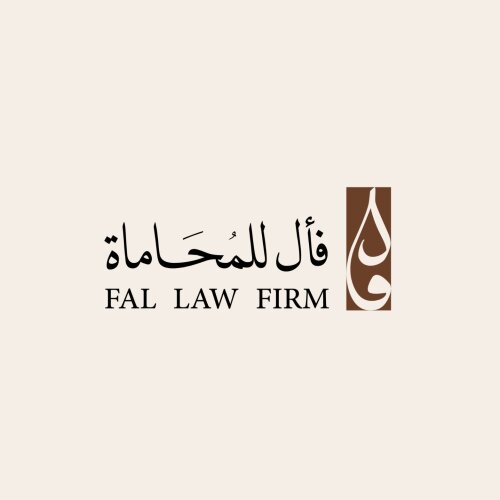Best Foreclosure Lawyers in Saudi Arabia
Share your needs with us, get contacted by law firms.
Free. Takes 2 min.
Free Guide to Hiring a Real Estate Lawyer
Or refine your search by selecting a city:
List of the best lawyers in Saudi Arabia
About Foreclosure Law in Saudi Arabia
Foreclosure in Saudi Arabia involves the legal process by which lenders can repossess a property from borrowers who fail to meet the agreed payment terms for loans such as mortgages. Due to its complex nature, foreclosure encompasses various legal protocols governed by both Sharia Law and the country's specific real estate regulations. The process typically involves court proceedings to ensure that all actions are in compliance with Islamic financing principles and local legal standards. The regulations aim to protect both lender and borrower rights, providing a fair resolution to financial disputes over property ownership.
Why You May Need a Lawyer
Engaging a lawyer is vital in several foreclosure-related situations. Primarily, if you are at risk of foreclosure due to missed mortgage payments, legal counsel can help negotiate with lenders or navigate restructuring loans under updated terms. Additionally, if you inherit a mortgaged property or are involved in a property dispute concerning payment default, a lawyer's expertise is crucial to secure your interests. Legal advice is also beneficial when challenging the lender's claims, understanding your rights, or preparing for court proceedings, ensuring compliance with Saudi Arabian laws.
Local Laws Overview
Foreclosure in Saudi Arabia is influenced by Sharia Law, which prohibits Riba (usury) and necessitates fair dealings in financial transactions. Lawful foreclosure processes are conducted through the judiciary, where lenders must seek court approval to repossess property assets. The recent implementation of the Real Estate Mortgage Law has added more structured procedures, including the necessity for lenders to issue default notices and opportunities for borrowers to rectify defaults before formal foreclosure actions. The Arabian judicial system also ensures that property sales are conducted transparently to maximize fairness and protect both parties' rights.
Frequently Asked Questions
What is the timeframe for the foreclosure process in Saudi Arabia?
The length of the foreclosure process varies depending on compliance with procedural requirements and court schedules but typically takes several months.
Can I negotiate with my lender to avoid foreclosure?
Yes, it is often possible to negotiate alternative payment plans or loan restructuring with your lender to avoid foreclosure.
How does Sharia Law affect foreclosure proceedings?
Sharia Law influences forbidden practices like charging interest and ensures all financial transactions are equitable and transparent, impacting how foreclosures are executed.
Is there a grace period before foreclosure proceedings begin?
Yes, lenders are required to issue a default notice, typically allowing a grace period for borrowers to make up missed payments before formal foreclosure begins.
What are my rights during a foreclosure process?
As a borrower, you have the right to timely notice and the opportunity to challenge the foreclosure or rectify defaults before final actions are taken.
Can foreclosure impact my other assets?
Generally, foreclosure impacts only the specific property secured by the mortgage, but broader financial issues may affect other assets.
Is it possible to stop a foreclosure once it has started?
Through legal intervention and satisfying missed payments or agreements, foreclosure proceedings can potentially be halted even after starting.
What happens if there is a property sale through foreclosure?
If the foreclosure results in a property sale, any surplus funds after repaying the loan and costs are typically returned to the borrower.
Do inheritance laws affect foreclosure?
Inheritance laws may influence who assumes responsibility for a mortgaged property and any associated debts, affecting foreclosure routes.
Where can I check the status of a foreclosure case?
The status can be checked through local courts handling the case; legal counsel will provide detailed guidance in navigating this.
Additional Resources
Some helpful resources include the Saudi Ministry of Justice, which provides judicial information and documentation. The Saudi Arabian Monetary Authority (SAMA) can offer guidance on financial regulations and consumer protections. Consulting with registered law firms specializing in real estate and Islamic finance can also provide tailored assistance.
Next Steps
If you need legal assistance in dealing with foreclosure, consider the following steps: Firstly, gather all relevant documentation pertaining to your mortgage and any communications with your lender. Secondly, consult with a qualified real estate or financial lawyer with expertise in Saudi Arabian foreclosure laws. Finally, engage your lawyer to represent you in negotiations or court proceedings, ensuring your rights are protected and the best possible outcome is achieved.
Lawzana helps you find the best lawyers and law firms in Saudi Arabia through a curated and pre-screened list of qualified legal professionals. Our platform offers rankings and detailed profiles of attorneys and law firms, allowing you to compare based on practice areas, including Foreclosure, experience, and client feedback.
Each profile includes a description of the firm's areas of practice, client reviews, team members and partners, year of establishment, spoken languages, office locations, contact information, social media presence, and any published articles or resources. Most firms on our platform speak English and are experienced in both local and international legal matters.
Get a quote from top-rated law firms in Saudi Arabia — quickly, securely, and without unnecessary hassle.
Disclaimer:
The information provided on this page is for general informational purposes only and does not constitute legal advice. While we strive to ensure the accuracy and relevance of the content, legal information may change over time, and interpretations of the law can vary. You should always consult with a qualified legal professional for advice specific to your situation.
We disclaim all liability for actions taken or not taken based on the content of this page. If you believe any information is incorrect or outdated, please contact us, and we will review and update it where appropriate.
Browse foreclosure law firms by city in Saudi Arabia
Refine your search by selecting a city.

















